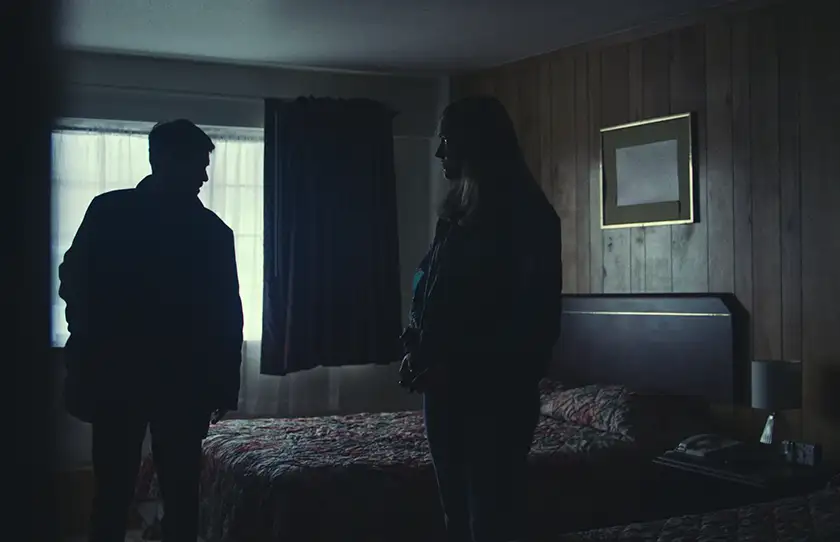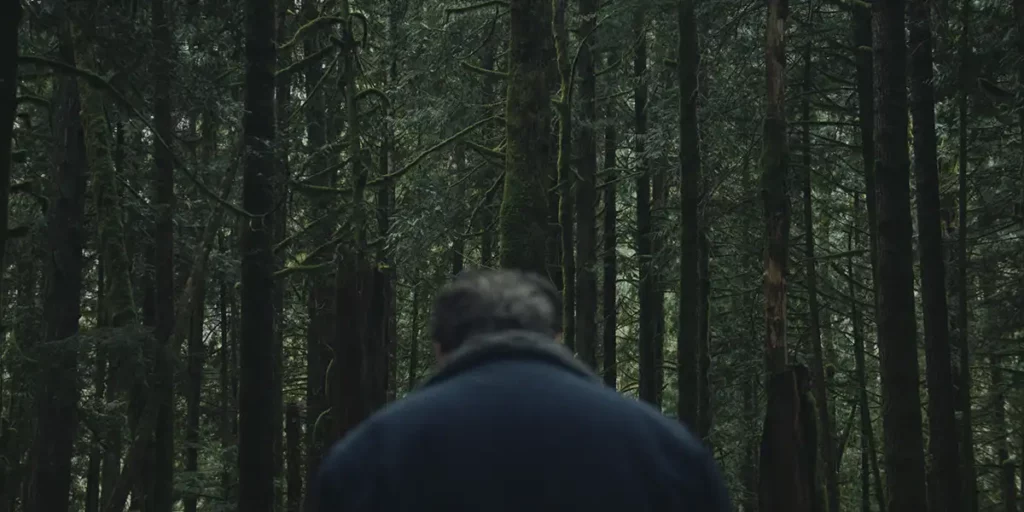To Kill A Wolf takes a well-known story and flips it on its head, misdirecting the audience at every turn with twisty, unpredictable storytelling.
Director: Kelsey Taylor
Genre: Drama, Mystery
Run Time: 92′
Edinburgh Premiere: August 18, 2024
US Release Date: August 21, 2025 in theaters
UK Release Date: TBA
Everybody knows the tale of Little Red Riding Hood: a young girl wanders too far into the forest, where she’s tricked by a sly wolf posing as her grandmother and learns an important lesson about trusting strangers. To Kill A Wolf, despite presenting itself as a modern retelling of the renowned fairy tale, uses the story’s ubiquity to trick the audience into thinking they know where this narrative is going, just to subvert their expectations at every step.
It’s a captivating and thoroughly enjoyable reworking of this story, executed in modern-day America and reevaluating the message that lies at the heart of the parable: perhaps it’s not strangers we should be afraid of, but rather those closest to us.
To Kill A Wolf opens with a young girl named Dani (Maddison Brown), alone and afraid in the woods without any clue where she’s going, when she’s picked up by a distant and mysterious woodsman (Ivan Martin) and taken back to his cabin. Based on the film’s inspiration, it would be fair to assume you know where the story is going from there – but you’d be wrong. What To Kill A Wolf does so excellently is trick the audience into anticipating certain plot beats and later spins them on their head, which makes the real horrors of this experience even more harrowing and unexpected.
At its core, To Kill A Wolf is a film that proves not everybody is who they present themselves as. People have dark secrets, and while fairy tales have served incredibly useful across the centuries for instilling children with important life lessons, perhaps their messages are not totally credible in the modern age. In that way, To Kill A Wolf is an incredibly cynical film that often presents people at their worst, subjecting its characters to fierce suffering and exploring the effects of trauma and guilt. On the other hand, however, the film weaves some more optimistic and inspirational messages of friendship and compassion, exploring how we can help each other overcome our obstacles.

With this level of social commentary and genuine purpose, To Kill A Wolf really shines. But where the film doesn’t always succeed is in its pacing and story progression. The non-linear structure has both positives and negatives: while it manages to subvert expectations and even sets up some small plot twists, it can sometimes be confusing to understand exactly when we’re in a flashback and when we’re in the present. This could be intentional, as it certainly gives the film more mystery, but the editing and direction doesn’t fully convey that purpose. The pacing is also somewhat uneven, with the first half of the film adopting a much slower, more thoughtful approach while the plot unravels much faster in the second half and loses much of the emotion and sentimentality.
But overall, To Kill A Wolf is another strong entry in this year’s Edinburgh Film Festival. It’s an extremely creative adventure that not only uses Red Riding Hood as inspiration for the narrative, but also as a meta-textual way of subverting expectations and building up to some truly shocking moments. Like all popular fairy tales, the film approaches some incredibly sensitive topics with warmth and purpose, never shying away from the dark side of humanity but always framing it from a position of hope. A standout combination of genres, blurring the lines between reality and fairy tales in a way that’s just as unnerving as it is impressive.
To Kill A Wolf was screened at the Edinburgh Film Festival on August 18, 2024 and will be released in U.S. theaters on August 21, 2025.

